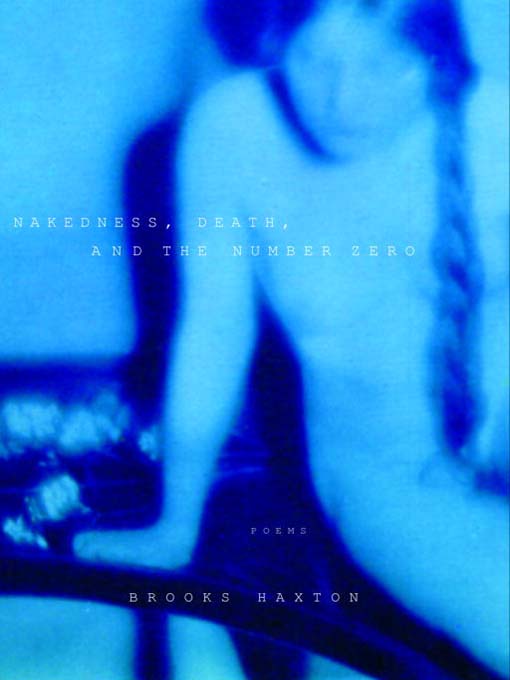
Nakedness, Death, and the Number Zero
Poems
- اطلاعات
- نقد و بررسی
- دیدگاه کاربران
نقد و بررسی

September 24, 2001
The overt themes of this book are fairly well laid out by the title: the body and its limitations, and what Haxton calls "displacement volumetrics," the space taken up by the self. This is familiar lyric territory: births, death, regrets—spaces where "a dark and an indifferent/ Cold came making themselves/ a place with room for us." For Haxton's speaker, though, the generic themes of middle age are spiked with the middle-class guilt of a protest-era child who suddenly finds that he is part of the status quo. In bygone days, the power of hallucinogenic drugs and the easy escape of the bayou were enough to bridge socioeconomic gaps, and brought together, for example, the Haxton's Eliot-quoting poet and his Dylan-singing friend. But the friend moved onto harder drugs and younger women, and Haxton, despite a false bio in which he gives up fame and fortune for the anonymity of blues composition, gave up a blue-collar life ("instead of tears…I could be selling men's clothes") for that of academia. Haxton's ideal is "Craig or Greg," the museum guard who, catching him in the midst of memorizing "Lycidas," takes over the recitation from him. Haxton's speaker recognizes that this scene is pure wish-fulfillment, and his vigilant self-consciousness throughout the book lends weight to his imagined returns to the tawdry South of his youth, and foreground a battle between a tendency towards lyricism and the desire to "make part make sense." The anti-elitist ethos similar to that which drove much Greek drama seems to be what Haxton is shooting for (Haxton is a noted translator from Greek), but the necessary degree of depersonalization never quite happens.

February 1, 2002
Having previously published several book-length narrative poems, as well as translations of Greek literature, Haxton seems at home with both powerful confessional poems and works making rich allusions to Archimedes, Orpheus, Dante, Milton, and the divinities of ancient Egypt. This book creates a kind of dark myth of the self, in which separations, betrayals, and personal losses are poignantly expressed, especially in long poems like "Tweeg" and "Teenage Ikon." Haxton has a keen eye and a true flair for imagery, seeing in the scales of a bluegill "obsidian/ and apricot" or noting crocuses breaking their "muddy scab of ice." There is even sly wit and humor, as in "Author's Bio," where he fashions an outrageous curriculum vitae. Always engaging and accessible, Haxton's poems speak to the great forces in his life, including his Mississippi boyhood and his powerful connection to his friends, wife, and children. He includes them all, yet he always returns to his desk, where he finds his "life's work." Highly recommended for both public and academic libraries. Daniel L. Guillory, Millikin Univ., Decatur, IL
Copyright 2001 Library Journal, LLC Used with permission.




دیدگاه کاربران